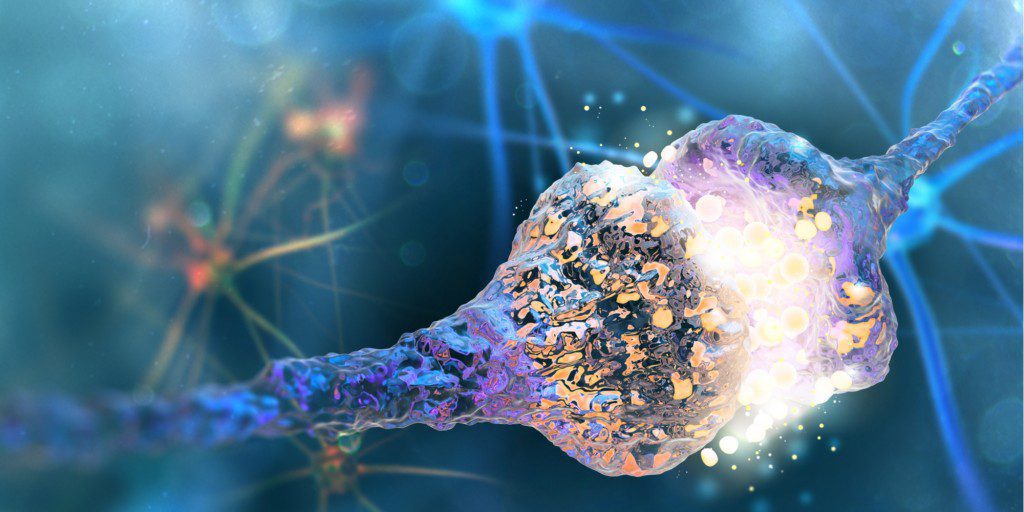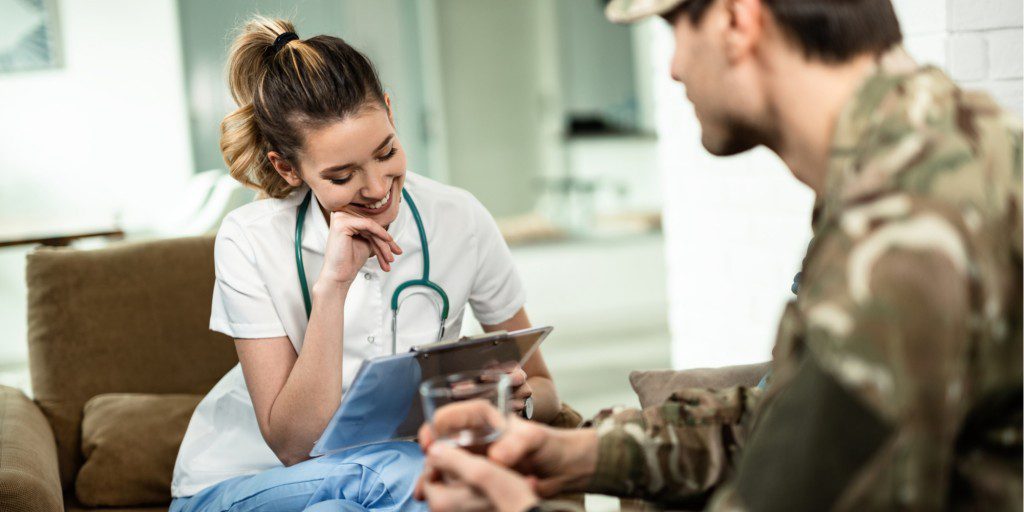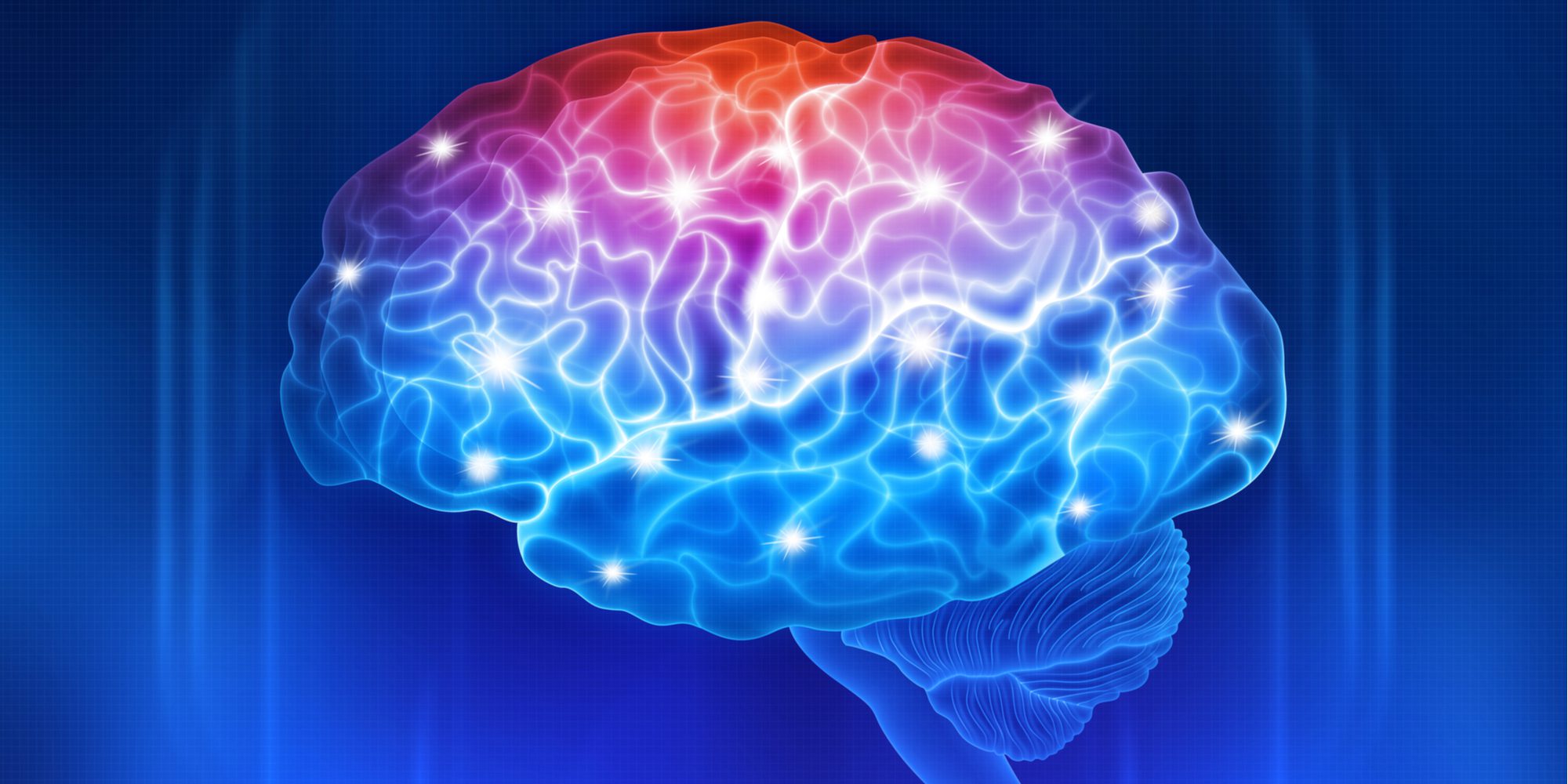Experiencing post-traumatic stress disorder (PTSD) in addition to an alcohol addiction is a common occurrence for veterans. What many people don’t know is that there are ways to prevent PTSD symptoms from getting worse.
If you are looking to heal from PTSD and addiction, the trick is to learn about the relationship between the an important neurotransmitter called GABA and alcohol consumption. Recovery can only happen when this connection between PTSD, GABA, and alcohol are in balance.
How Does GABA Work?

There are neurotransmitters throughout the body that help the brain and the nervous system know how to react to specific stimuli. One of these important neurotransmitters is known as GABA, or gamma-aminobutyric acid. To go a bit more in depth, GABA is an inhibitory neurotransmitter. This means that GABA inhibits, or prevents, the nervous system from overreacting to either internal or external stimuli.
Essentially, GABA is the neurotransmitter that works to keep the nervous system cool, calm, and collected. This neurotransmitter is particularly significant in helping veterans heal from post-traumatic stress disorder (PTSD) because this condition often results in disruptive symptoms.
Are you or a loved one in need of help?
In cases of PTSD, the mind and body often react to certain triggers—like crowded spaces, loud noises, etc.—as though they are back in the place where the trauma occurred. As this happens, the body’s nervous system detects everything else as a threat and it goes into survival mode. This can cause people who are experiencing PTSD triggers to go through:
- Realistic flashbacks
- Panic attacks
- Migraines
- Nausea and vomiting
- Anxiety
- Depression
- Extreme behavioral changes
- Periods of aggression
Naturally, veterans who have these symptoms of PTSD often do not want to go into new situations because of the risk of having a reaction like this. Some veterans even need service dogs to help get them to a safe place because the emotions they feel during PTSD episodes are so upsetting.
Now, GABA is the neurotransmitter that is supposed to help regulate severe reactions from the nervous system like the ones detailed above. Therefore, when the body does not have a sufficient production of GABA, there can be serious side effects. These side effects include:
- Seizures
- Depression
- Increased anxiety
- Worsened PTSD
- And other symptoms of mental health distress
In most situations, the body naturally produces the correct amount of GABA necessary to function happily and healthily. However, there are certain factors that can harm the natural production of GABA throughout the body, which can increase your chances of experiencing the side effects mentioned above. One of the most influential substances that affects GABA production is alcohol consumption.
Do GABA and Alcohol Influence Mental Health?
Alcohol contains harmful chemicals that bring damage to the body, the brain, and GABA neurotransmitters over time. For people who struggle with an addiction to alcohol, they might experience deteriorating physical and mental health as a result of this decline in GABA production.
For veterans, having enough GABA in the system is extremely important in warding away the symptoms of PTSD or other mental health concerns. Veterans are at a much higher risk of developing mental health conditions like PTSD, depression, and anxiety. It’s important to remember that the symptoms of mental health conditions are not signs of weakness—on the contrary, veterans often develop mental health disorders because they are exposed to more trauma on a daily basis as a result of their job.
But when the symptoms of these disorders go untreated, veterans are often unsure how to cope with the discomfort and the disruptions. Therefore, they turn to unhealthy coping mechanisms, such as drinking alcohol, to push away the pain temporarily.
However, the more frequently veterans consume alcohol, the more likely it is that the production of GABA will decrease. As GABA and alcohol mix, veterans’ mental health symptoms only get harder to handle. Then, when they have no other solution but to drink to numb the side effects of GABA depletion, it turns into a horrendous cycle of alcoholism that often feels impossible to break.
In order to support the body’s natural production of GABA, some people take GABA supplements. These are supposed to help ease emotional distress by introducing more GABA to the nervous system. Unfortunately, research has been inconclusive on how well these GABA supplements work. Moreover, GABA supplements cannot entirely prevent alcohol from harming your body.
Alcohol does a number on many other areas of the body in addition to decreasing the way GABA is supposed to function. Alcohol use disorders can also cause:
- Memory loss
- Vision loss
- Brain damage
- Liver failure
- Vitamin deficiency
- Cancer
This is why finding full recovery from an addiction to alcohol is so important. Alcohol can bring a lot of harm to the mind, body, and spirit. So, while there are some alternative approaches to increasing the effectiveness of GABA throughout the body, it’s only through physical and mental health interventions that complete healing can truly begin.
How Do I Recover from Alcohol Addiction?

Veterans who are looking to recover from alcohol addiction in order to restore their body’s natural use of GABA should look for rehabilitation centers that know exactly what veterans go through on a day-to-day basis. Thankfully, Heroes’ Mile is a treatment center that is made especially for veterans who experience struggles with addiction in addition to their mental health.
At Heroes’ Mile, we aim to give back to our veterans who have already given so much to protect and serve this country. Our team of mental health professionals, physicians, and fellow veterans work to provide the best support and guidance specific to your recovery needs. Thus, we offer services such as:
- Drug and alcohol detox
- Residential rehab
- Partial hospitalization programing
- Intensive outpatient care
Here, you will be able to mend the relationship between GABA and alcohol consumption through step-by-step treatment opportunities that keep you safe even through the most challenging of times. Regardless of your treatment path, you will have the chance to fully heal with services including the 12 step program, specialized therapies, group support, family counseling, job preparedness training, links to community resources, and so much more.
To begin your recovery journey today, give us a call at 888-838-6692. Even if you aren’t quite ready to speak, you have the option to contact us by submitting a confidential form online. We are here to meet you in whichever stage of recovery you might be in, and we are ready to walk you through each step of the way so that you can achieve your sobriety goals with the right kind of support.
Contact Us:
Contact Us Heroes’ Mile
Social media:
Facebook
Linkedin
Instagram
YouTube Channel
Are you or a loved one in need of help?

